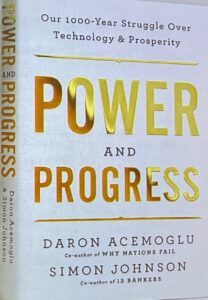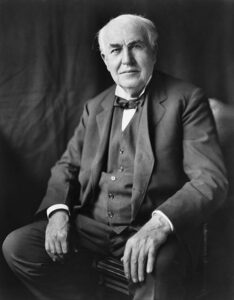Learning from History
 “The only thing we learn from history is that we learn nothing from history” said the interviewer in February 1962, quoting Hegel to a small group of students applying for admission to Rice University’s Class of 1966. “What do you think?” Stunned, I mumbled something about not wanting to repeat the World War that was raging when we were born. I also said I wanted to learn the way my brother Joel had in the Class of ’54. I believe that it was this conversation caused me to choose history as my undergraduate major.
“The only thing we learn from history is that we learn nothing from history” said the interviewer in February 1962, quoting Hegel to a small group of students applying for admission to Rice University’s Class of 1966. “What do you think?” Stunned, I mumbled something about not wanting to repeat the World War that was raging when we were born. I also said I wanted to learn the way my brother Joel had in the Class of ’54. I believe that it was this conversation caused me to choose history as my undergraduate major.
Power and Progress, a book promoted by Andrew Steer, CEO of the $10 billion Bezos Earth Fund at Chautauqua, aims to help us all understand the changes that technology has wrought over the past milennium and the challenges posed now by Artificial Intelligence. Indeed, it was AI that just identified my opening quote as by Georg Wilhelm Friedrich Hegel.
Power and Progress covers a thousand years of inventions that caused much change, but failed to bring shared prosperity to more than just a few.
- Advances in European ship design from the late Middle Ages enabled transoceanic trade and created massive fortunes for some Europeans. But these more powerful ships also transported millions of enslaved people from Africa to the New World.
- The cotton gin was a revolutionary innovation that turned the United States into the largest cotton exporter in the world. The same invention intensified the growth of slavery as cotton plantations expanded across the American South.
- At the end of the 19th century, German chemist Fritz Haber developed artificial fertilizers that boosted agricultural yields. Subsequently, Haber and other scientists used the same ideas to design chemical weapons that killed and maimed hundred of thousands on WW I battlefields.
- Spectacular advances in computers have enriched a small group of entrepreneurs and business tycoons over the last several decades, whereas most Americans without a college education have been left behind and many have seen their real incomes decline.
It’s true that we now live much healthier, longer lives than our ancestors could have imagined, but that result was not automatic. Shared prosperity emerged only when society’s approach to dividing technological gains were redirected from serving only a narrow elite who had power. Those of us who benefit from progress do so because at critical junctures, our predecessors were able to make progress work for a broader range of people.

Electricity, for instance, was not just a cheaper source of energy. It was also a “general-purpose” technology that paved the way for many new products–radios, household appliances, movies, and television. It enabled a fundamental reorganization of factories, with better lighting and new precision tasks. Advances in manufacturing launched new products, including plastics, dyes, metals, and vehicles that spread to other industries. Many new jobs were created, resulting in a broader prosperity. Of course, electricity has also led to much greater levels of pollution of our environment.
Shared prosperity depends on an underlying shared vision. That means considering many ways to solve problems and seeking input from all who will be affected. Power and Progress alerts us to a present danger.
Artificial Intelligence appears set on a trajectory that will multiply inequalities, not just in industrialized countries, but everywhere around the world. Fueled by massive data collection, big tech companies and authoritarian governments, it is stifling democracy and strengthening autocracy.
The vision oligarchy is so persuasive because it has had brilliant commercial success….The oligarchy has charisma, in its nerdy way….Most importantly, these modern oligarchs mesmerize influential custodians of opinion–journalists, other business leaders, politicians, academicians, and all sorts of intellectuals,,,,,It is critical to rein in this modern oligarchy…..We have amazing tools at our disposal, and digital technologies could amplify what humanity can do. But only if we put these tools to work for people.
This book enabled me to dig deeper and better understand both what we’ve experienced in the past and the issues we confront now. I recommend it to all who hope for AI and other technologies to be beneficial for all of us. Here this month in Dornoch, playing the piano most mornings in the ancient Cathedral, I am reminded by three stained glass windows dedicated to Andrew Carnegie of how he gave virtually all of his steel fortune in support of music and literature. Bill Gates and Jeff Bezos seem to be following in his footsteps. I look forward to your comments on Power and Progress.
Leave a Reply